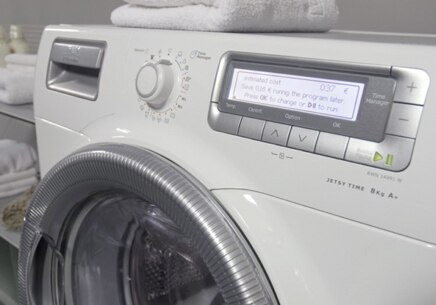
Royal Seaport, an urban development project underway in Northern Stockholm, is currently one of Europe's largest construction sites. A joint initiative between the city of Stockholm, academia and businesses including ABB, Electrolux, Ericsson and utility company Fortum, Royal Seaport is pioneering a leading-edge smart-grid system - a precondition for zero-carbon living.
The project aims to cut per person carbon emissions to 1.5 tons annually by 2024 - 75% lower than the 2009 level of 6.0 tons. It will achieve this through carbon-free energy sources such as wind and sun, and feature cutting-edge architecture equipped with climate-smart appliances.
Consuming up to 20% of all residential electricity, household appliances play a key role in helping to reduce the carbon impact of living. Smart-grids facilitate both the generation and use of energy on a local, distributed level. Active houses and new ways of storing renewable energy will help smooth peaks and troughs in energy capacity.
Next generation appliances being developed by Electrolux are equipped with IT solutions that inform about real-time power capacity. Appliances can be defaulted to make the most of off-peak opportunities, and save money. Alternatively, users can opt to run at high peak, and pay more for the convenience.
Together, these initiatives contribute to the end-goal of a fossil-fuel-free community with 10,000 residences and 30,000 workplaces by 2030. Royal Seaport is showcasing the Group's product innovation and embodies the important role of cross-industry partnerships in achieving its sustainability vision.
During 2010, Electrolux took part in other smart-grid initiatives in Italy, Denmark and the Netherlands.
